While Medicare Part D coverage has changed, XPHOZAH is available. Learn more

XPHOZAH is not a phosphate binder
XPHOZAH is the first and only phosphate absorption inhibitor (PAI)
XPHOZAH specifically blocks the primary pathway of phosphate absorption



Actor portrayals.

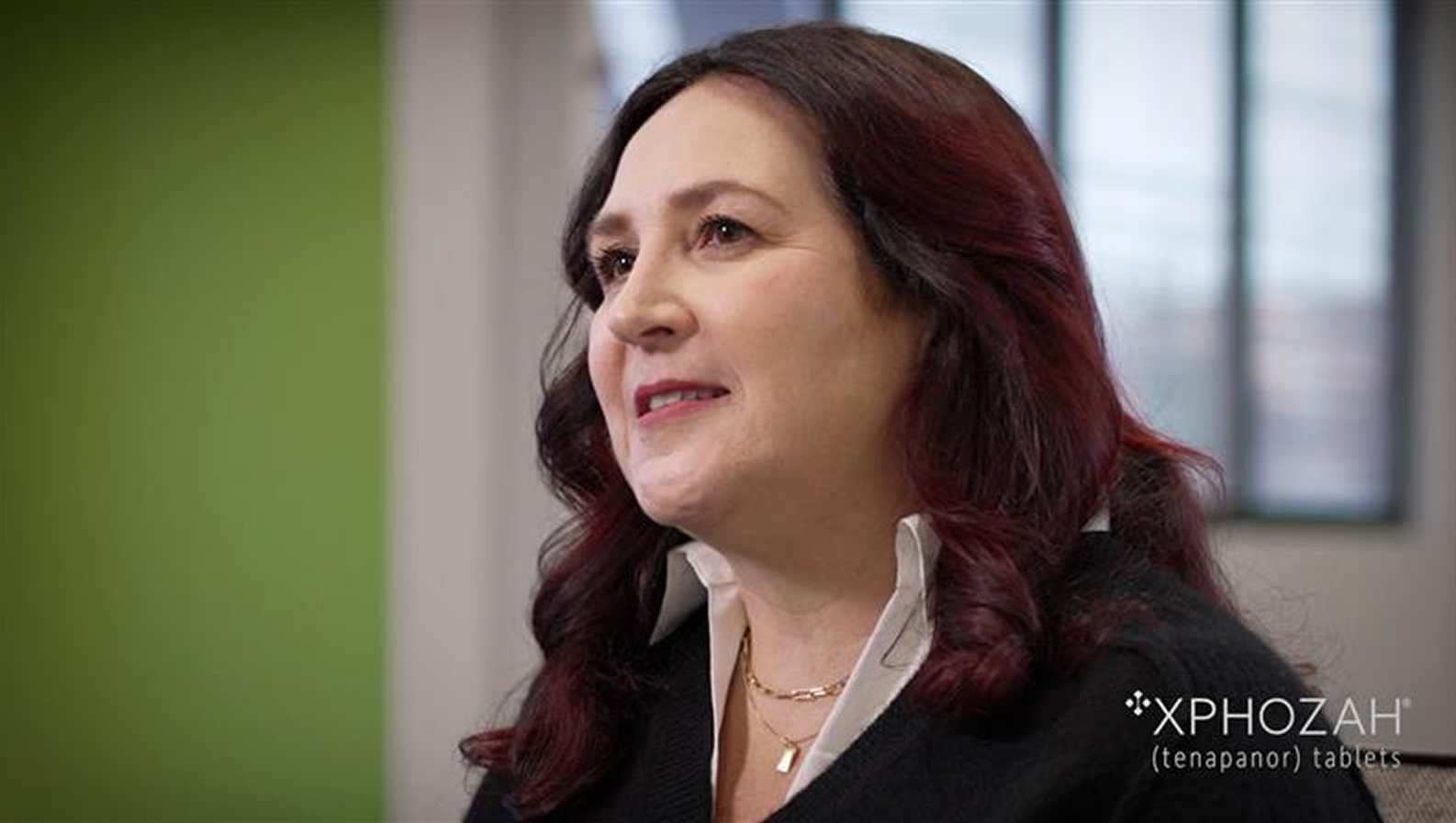 Rory Pace
Rory PaceBoard-certified renal nutrition specialist Rory Pace provides key insight on phosphorus management and how XPHOZAH fits into patient care discussions.

Patient Care America
![]()
Their healthcare provider will send their XPHOZAH prescription to a specialty pharmacy
![]()
They must reply to the text or phone call from the specialty pharmacy to get their medication
![]()
The specialty pharmacy will work with them to arrange delivery of XPHOZAH to their home
![]()
Instead, take XPHOZAH right before the next meal following dialysis.
If patients experience diarrhea, it will likely happen soon after starting XPHOZAH and go away with continued treatment, or their doctor may lower their dose.

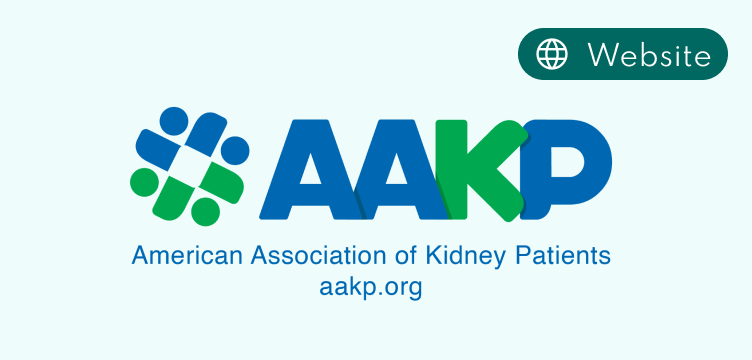


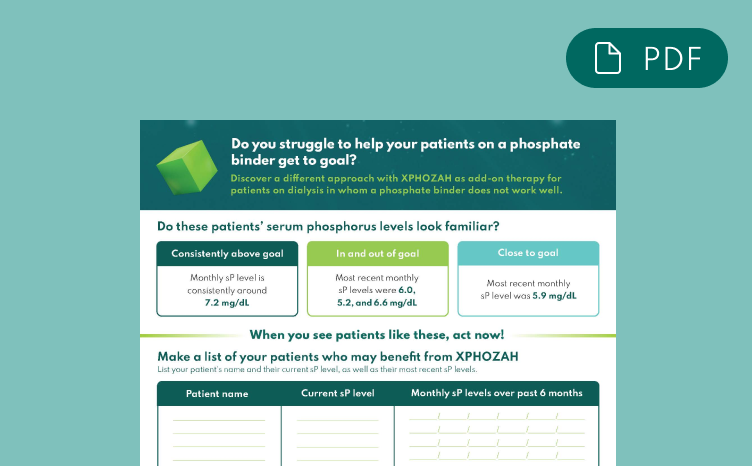
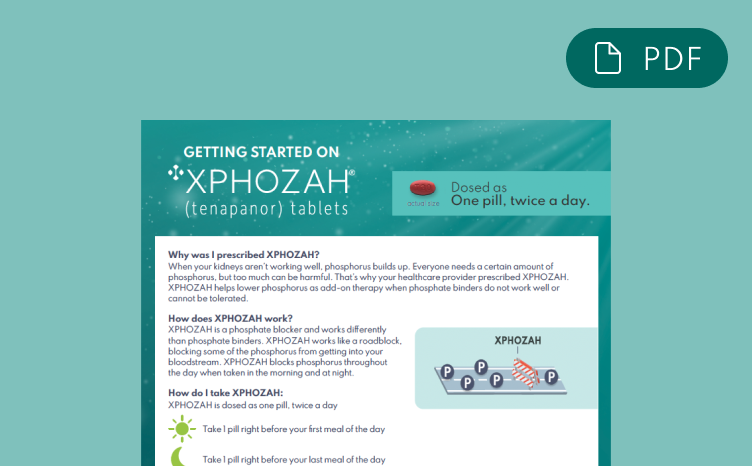
A summary of important information to share with patients getting started on XPHOZAH.
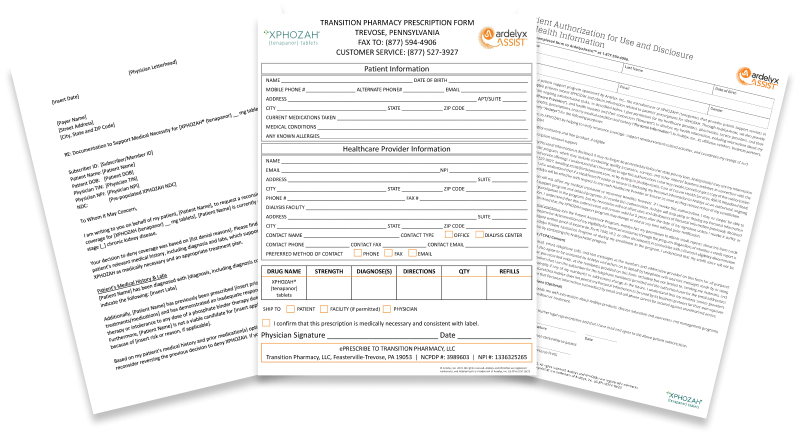
Find forms and resources to help support your patients in getting their XPHOZAH prescription.
Fishbane SN, Nigwekar S. Phosphate absorption and hyperphosphatemia management in kidney disease: a physiology-based review. Kidney Med. 2021;3(6):1057-1064.
XPHOZAH® (tenapanor) full Prescribing Information. Waltham, MA: Ardelyx, Inc.; 2023.
XPHOZAH (tenapanor) 30 mg BID is indicated to reduce serum phosphorus in adults with chronic kidney disease (CKD) on dialysis as add-on therapy in patients who have an inadequate response to phosphate binders or who are intolerant of any dose of phosphate binder therapy.
XPHOZAH is contraindicated in:
Patients may experience severe diarrhea. Treatment with XPHOZAH should be discontinued in patients who develop severe diarrhea.
Diarrhea, which occurred in 43-53% of patients, was the only adverse reaction reported in at least 5% of XPHOZAH-treated patients with CKD on dialysis across trials. The majority of diarrhea events in XPHOZAH-treated patients were reported to be mild-to-moderate in severity and resolved over time, or with dose reduction. Diarrhea was typically reported soon after initiation but could occur at any time during treatment with XPHOZAH. Severe diarrhea was reported in 5% of XPHOZAH-treated patients in these trials.
For additional safety information, please see full Prescribing Information.
XPHOZAH (tenapanor) 30 mg BID is indicated to reduce serum phosphorus in adults with chronic kidney disease (CKD) on dialysis as add-on therapy in patients who have an inadequate response to phosphate binders or who are intolerant of any dose of phosphate binder therapy.
XPHOZAH is contraindicated in:
Patients may experience severe diarrhea. Treatment with XPHOZAH should be discontinued in patients who develop severe diarrhea.
Diarrhea, which occurred in 43-53% of patients, was the only adverse reaction reported in at least 5% of XPHOZAH-treated patients with CKD on dialysis across trials. The majority of diarrhea events in XPHOZAH-treated patients were reported to be mild-to-moderate in severity and resolved over time, or with dose reduction. Diarrhea was typically reported soon after initiation but could occur at any time during treatment with XPHOZAH. Severe diarrhea was reported in 5% of XPHOZAH-treated patients in these trials.
For additional safety information, please see full Prescribing Information.
![]()
![]()
![]()